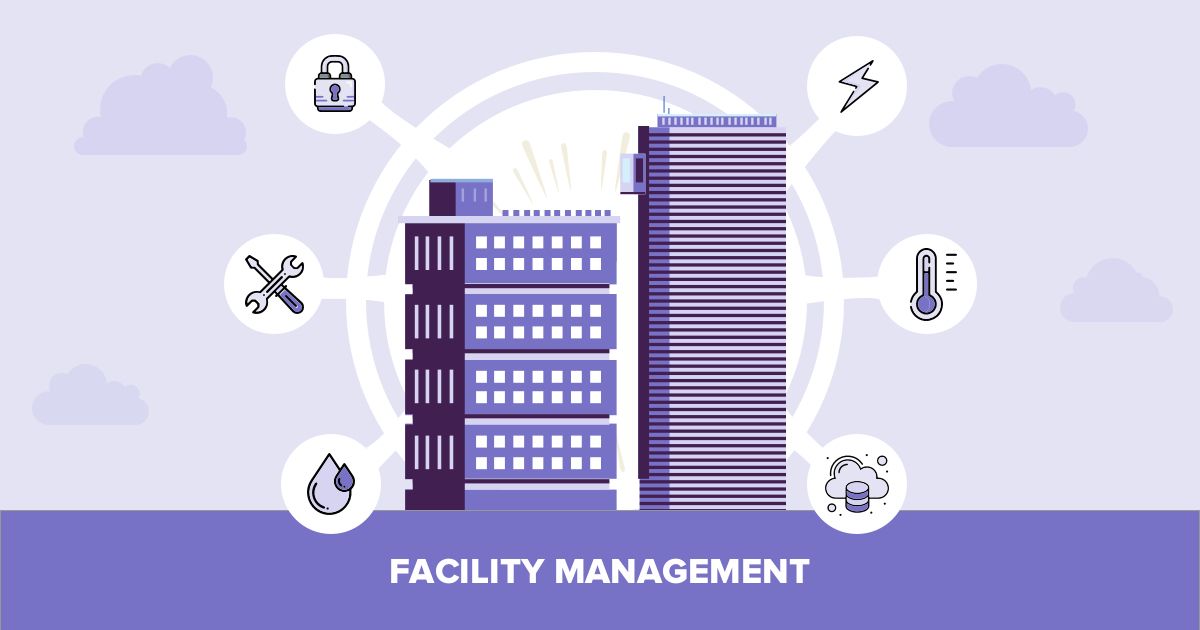Leading Advantages of Total Facility Management for Streamlined Workflow
Total Facility Management (TFM) stands for a strategic technique to improving functional efficiency by incorporating various services, such as maintenance and safety, under a unified management framework. The inquiry continues to be: what specific advantages can organizations harness from embracing TFM, and just how might these advantages transform their functional landscape?
Improved Operational Efficiency
Improved functional efficiency is a main benefit of carrying out total facility management (TFM) techniques. TFM includes a detailed method to handling a facility's sources, processes, and facilities, inevitably improving procedures. By combining numerous services-- such as maintenance, safety and security, room, and cleansing management-- TFM reduces redundancies and boosts coordination amongst different operational features.
The integration of innovation more intensifies this efficiency. Advanced facility management systems provide real-time data analytics, making it possible for facility supervisors to make enlightened decisions that enhance operations and source allowance. Anticipating maintenance strategies, as an example, expect equipment failings before they happen, decreasing downtime and expanding possession lifespan.
Additionally, TFM promotes standard procedures throughout different divisions, making certain uniformity and high quality in service shipment. This uniformity reduces operational interruptions and promotes a much more collaborative functioning environment. Consequently, workers can concentrate on their core responsibilities, driving productivity and boosting general performance.

Cost Decrease and Cost Savings
Carrying out total facility management (TFM) not just enhances functional efficiency yet also substantially adds to cost decrease and savings. By combining different services under a single management structure, organizations can eliminate redundancies and streamline processes, thereby minimizing functional costs. TFM allows far better purchase strategies, enabling business to bargain bulk investing in agreements with vendors and solution providers, causing reduced rates.
Furthermore, TFM stresses preventive maintenance, which lessens unexpected break downs and expands the life expectancy of critical equipment. This positive technique not just lowers repair expenses however additionally enhances the dependability of facilitiess, making certain continuous procedures. Furthermore, power performance campaigns, frequently a crucial focus of TFM, cause significant savings on utility costs, as facilitiess are maximized for decreased energy consumption.
Improved Source Management
Efficient resource management is a cornerstone of total facility management (TFM), allowing organizations to maximize making use of their possessions and labor force. By executing TFM strategies, companies can adequately analyze their resource allowance, guaranteeing that every asset is made use of effectively and efficiently. This holistic strategy enables the identification of underperforming resources and the possibility for reallocation or improvement.
On top of that, TFM helps with the integration of modern technology for real-time surveillance of sources, which assists in predicting upkeep requirements and preventing pricey downtime. By leveraging information analytics, companies can make informed decisions regarding resource release, eventually boosting efficiency and lowering waste.
Additionally, TFM promotes a culture of constant enhancement, encouraging teams to routinely assess and fine-tune their resource management practices. Total Facility Management. This proactive position not just lessens operational interruptions yet additionally promotes technology, as staff members are empowered to suggest renovations based on their direct experiences with resource use
Streamlined Interaction Channels
In total facility management, structured interaction channels play a crucial role in promoting cooperation and efficiency throughout groups. Effective communication ensures that all stakeholders, consisting of facility supervisors, maintenance personnel, and provider, are lined up with business objectives and functional requirements. By establishing click now clear lines of interaction, groups can swiftly attend to worries, share updates, and implement remedies, consequently minimizing downtime and enhancing performance.
With streamlined communication systems, information is quickly available, enabling for real-time updates on upkeep requests, resource allotment, and project timelines. This transparency not only lowers misconceptions but also equips workers to make educated choices rapidly. In addition, streamlined communication helps with better sychronisation throughout emergencies, making sure that all employees are educated and can react promptly.

Raised Concentrate On Core Activities
A vital benefit of total facility management is the increased concentrate on core activities, allowing organizations to focus on their key service purposes - Total Facility Management. By outsourcing pop over to this web-site non-core functions such as upkeep, safety and security, and cleansing, firms can redirect their sources and power in the direction of calculated campaigns that straight contribute to their affordable benefit and growth
Total facility management incorporates numerous functional jobs under a single umbrella, fostering performance and reducing redundancy. This debt consolidation not just enhances procedures however likewise improves responsibility, making certain that every aspect of the facility operates sympathetically without diverting interest from what truly matters-- core service functions.
In addition, this approach allows employees to commit their time and initiatives to tasks that drive advancement and improve consumer satisfaction, instead of getting bogged down by functional difficulties. With a reliable facility management partner taking care of daily operations, companies can accomplish higher agility, respond promptly to market modifications, and maintain a sharper emphasis on their objective.
Eventually, raised focus on core tasks causes improved general efficiency, enabling companies to strengthen their market setting and fulfill their calculated objectives much more effectively. - Total Facility Management
Final Thought
In conclusion, Total Facility Management dramatically improves operational performance by settling crucial solutions and leveraging data analytics for educated decision-making. Cost decreases and improved resource management add to general financial savings, while structured communication networks foster cooperation among stakeholders. By permitting organizations to concentrate on core tasks, TFM not only maximizes click here for more info performance yet also reinforces market positioning. The integration of these benefits emphasizes the importance of TFM in achieving lasting operational excellence.
Total Facility Management (TFM) stands for a tactical technique to improving operational effectiveness by integrating different services, such as maintenance and safety, under a unified management framework.Enhanced operational efficiency is a primary benefit of executing total facility management (TFM) approaches. Advanced facility management systems give real-time data analytics, allowing facility supervisors to make enlightened decisions that improve process and source appropriation.Executing total facility management (TFM) not just boosts functional performance but also considerably contributes to cost reduction and savings.Effective resource management is a cornerstone of total facility management (TFM), enabling organizations to maximize the usage of their properties and labor force.